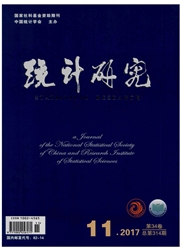

 中文摘要:
中文摘要:
一般认为合资企业比独资企业更有利于产生技术溢出,而中国近年已经显示出明显的外资独资化趋势。基于此,本文尝试应用第一次经济普查有关制造业的细分数据,采用分层模型,就外商独资化倾向对行业内技术溢出效应的影响进行实证分析。分析结果表明,独资化对内资企业确实具有负面影响:在竞争性技术溢出效应产生方面,独资化有抑制作用;在集聚性技术溢出效应方面,独资化产生了更强的“挤出”效应。
 英文摘要:
英文摘要:
This study hypothesizes that the ownership structure in foreign investment projects affects the extent horizontal spillovers from foreign direct investment. Because multinationals tend to transfer less sophisticated technologies to their partially owned affiliates than to wholly owned subsidiaries, combined with the better access to knowledge through the participation of the local shareholder in partially owned projects, may facilitate more knowledge absorption by local firms in the same sector. The dissertation analyzes the impacts of wholly foreign owned subsidiaries on horizontal spillovers using the multilevel data obtained from the first economic census of China. The empirical analysis shows that wholly-foreign-owned modes affect the national enterprises negatively.
 同期刊论文项目
同期刊论文项目
 同项目期刊论文
同项目期刊论文
 期刊信息
期刊信息
